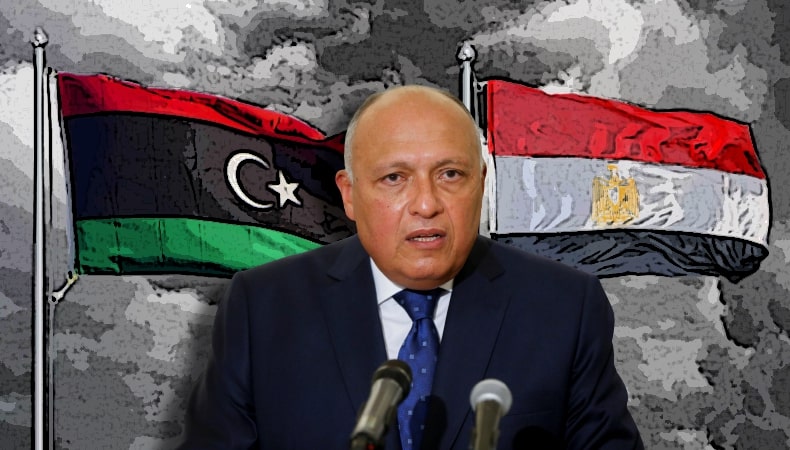Egypt backs UN’s efforts towards establishing comprehensive political settlement in Libya

On Wednesday, Egyptian foreign minister Sameh Shokry held talks with UN Secretary-General’s Special Envoy and Head of the United Nations Support Mission in Libya (UNSMIL) Jan Kubis. The meeting was held in the ministry’s headquarters in Cairo. Shokry affirmed his nation’s compliance with the UN’s efforts towards reaching a comprehensive political settlement in Libya.
The Egyptian minster confirmed that his country backed UN peace plan along with establishing political dialogue among rival groups to preserve unity and territorial integrity of the country. Shokry stressed on the need for all the political players of Libya to abide by the decision of the Libyan National Dialogue Forum promoted by the UNSMIL. It also supported the move demanding immediate removal of mercenaries and foreign militants from the Libyan soil.
Shokry’s statement read, “That is in addition to the importance of bringing to an end all non-constructive foreign interventions that promote Libyan fragmentation.” Besides, the Egyptian foreign ministry’s Spokesperson Ahmed Hafez’s statement with regard to the recent meeting indicated his country’s keenness to support not only unified political council in Libya but also a common military commission involving both the rival groups. Cairo’s minister extended his support to the 5+5 Libyan Joint Military Commission, which included five representatives from each of the rival sides.
Libya has been a victim tofrequent conflicts and civil wars, challenging its stability since the downfall of its despotic leader Muammar Gaddafi, sparked by a Nato-backed uprising in 2011. The country’s political vacuum and chaos made for a perfect breeding ground for different political factions along with terror groups including Daesh.
The North African nation is currently undergoing a significant political transition with the setting up of a unity government, led by Libya’s new interim prime minister Abdul Hamid Dbeibah. Dbeibah was officially sworn in as the country’s interim premier on 15 March. After a decade of conflict and wars, the warn-torn nation finally adopted a peace path with UN intervention. The October accord brought together rival administrations, including UN-backed GNA (Government of National Accord) led by the outgoing Prime Minister Fayez al-Sarraj and LNA (Libyan National Army) led by self-styled warlord Khalifa Haftar.
The key goal of the unity government is believed to bring in some stability and prosperity to its people. Besides, it would also prepare the nation for its first democratic elections in years, scheduled for 24 December 2021. With regard to Libya’s new political phase, GNA’s al-Sarraj said he was”fully ready to hand over” power, while Haftar last month offered “the support of the armed forces for the peace process”.




